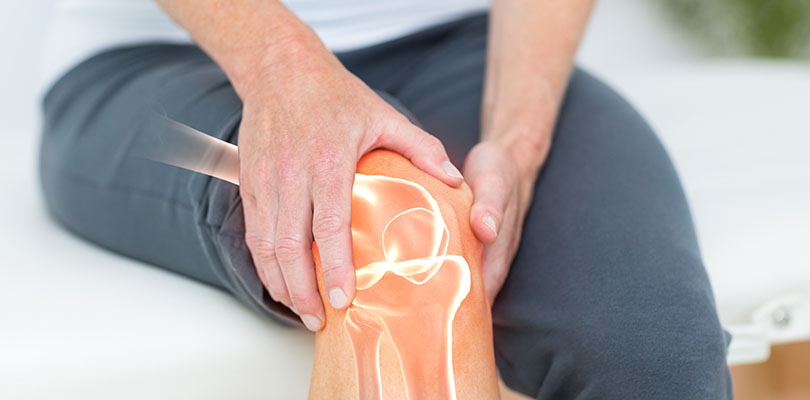Carpal Tunnel Symptoms
If you type all day or do any repetitive motion with your hands, carpal tunnel syndrome is a real risk. You’ve likely heard of carpal tunnel before but may not realize why it develops and what can be done.
Let’s take a look at the 10 common signs of carpal tunnel, when to see a doctor, how it’s treated, and how you can help prevent this condition.
What Is Carpal Tunnel?
Carpal tunnel syndrome is a medical condition that causes numbness, tingling and other symptoms in the hand and arm. This condition develops when a nerve is compressed in the carpal tunnel, which is a narrow passageway leading to your wrist (on the palm side). This nerve is called the median nerve.
Some people seem to have a higher risk of carpal tunnel, possibly due to the anatomy of the wrist. When you perform repetitive tasks using one hand or wrist, this can put excess pressure on the median nerve. This creates pressure causing symptoms like tingling and numbness in the hand and arm. The pain can travel up the forearm, even to the shoulder and elsewhere.
Causes of carpal tunnel include:
- Repetitive motions especially if your hands are lower than your wrist.
- Conditions like diabetes, obesity, hypothyroidism, obesity, and rheumatoid arthritis
- Pregnancy
In fact, there is is no single cause. A combination of factors likely leads to developing this condition.
Anything that squeezes or irritates the median nerve may lead to carpal tunnel syndrome. A wrist fracture, for example, can narrow the carpal tunnel and irritate the nerve. The inflammation and swelling from rheumatoid arthritis can also contribute.
One thing is certain, women are more likely to develop carpal tunnel syndrome. Researchers believe this is because the carpal tunnel area is smaller in women than it is in men. And some women have smaller carpal tunnels than others do.
Working conditions are often to blame. Along with typing, working with vibrating tools - or doing a repetitive motion on an assembly line – can create the harmful pressure that irritates the median nerve or worsens nerve damage.
Symptoms of Carpal Tunnel Syndrome
Let’s take a close look at the signs and symptoms of this medical condition:
1. Tingling or Numbness
The first symptoms can be very subtle – a slight numbness or tingling in your fingertips or hands. Interestingly, the pinky finger very often is not affected. The tingling may feel very unusual, possibly like an electric shock.
You might feel this tingling when you hold an object – your phone, the steering wheel, or a pen. You might even wake up at night feeling the tingling. Your first instinct might be to shake your hands to stop the tingling.
2. Weakness
If your hands have started feeling weak – and you have trouble holding objects – you might have carpal tunnel syndrome. Have you started dropping things? The hand numbness might cause this, or it’s because muscles in your thumb are affected. The median nerve controls the thumb.
Most people don’t realize this condition doesn’t just cause tingling and pain. It can also make holding onto things a lot harder. You can even lose your ability to do everyday things like open a milk bottle or grip the steering wheel of your car.
3. Nighttime Symptoms
Some people feel their first symptoms at night when they bend wrists while asleep. This bending motion puts pressure on the median nerve, which can be very tingly or painful.
Your first reaction might be to shake your wrists in an attempt to short-circuit the sensation. If this is happening frequently, talk to your doctor. At that point it’s probably carpal tunnel – and not some weird occurrence. Get treatment early before it gets worse.
4. Feeling of Swollen Fingers
If your fingers feel swollen – but they look fine – it might be carpal tunnel. This feeling can be very strange because it makes no sense. To look at your fingers, they don’t look any different from usual. Yet they feel larger, very swollen.
You may think soaking your hands in hot water will help them feel better, but this won’t help. This feeling of swollen fingers is very typical in cases of advanced carpal tunnel syndrome.
What is psoriatic arthritis? It's a type of arthritis that affects people who suffer from psoriasis. Here is how it's diagnosed, along with common symptoms.
5. Pain and Tingling Traveling Up the Forearm
The feeling of numbness, pain, and tingling can extend beyond your fingers and hands. Your forearm might get affected – as well as your shoulder. This radiating pain can be very uncomfortable, but it’s generally carpal tunnel – not something worse. Many people have reported this type of sensation.
6. Electric Shocks
A feeling of “electric shock” is often described among carpal tunnel symptoms. You might experience this feeling occasionally through your fingers. This can be disturbing as people with other conditions like multiple sclerosis also report similar sensations -- much like tingling and numbness.
It’s important to find out what exactly is causing these symptoms, to make sure you know whether it’s carpal tunnel syndrome or another serious disease.
7. Difficulty Holding Small Objects
If you can’t easily hold your toothbrush, use your keys, or handle a pen, you might have carpal tunnel syndrome. Very often, dexterity and flexibility with small objects is very limited. You can work with big objects the same as before, but they might fall while you’re carrying them.
8. Making a Fist is Difficult
If you’ve ever slept on your hand in a strange position, you know that it’s hard to make a fist after you wake up. Or if you’ve been biking a long distance, your hands can feel nearly paralyzed, useless. You couldn’t make a fist if you tried. Your impulse is to “shake out” your fingers to loosen them.
That’s the feeling when you have carpal tunnel syndrome. It’s very frustrating and embarrassing when you can’t make a fist – as it affects your ability to do everyday things like grip a milk carton or a package, or even hold onto the car’s steering wheel.
9. Can’t Sleep Due to Wrist Pain
If the wrist pain is so bad that you can’t sleep at night, carpal tunnel syndrome may be at work. You might have thought that carpal tunnel was just tingling and numbness, but as the condition worsens, there can be severe pain. Because the wrist is a sensitive area, you can have a difficult time sleeping – or focusing on your work during the day.
10. Clumsy Moves
Everyday activities can be difficult when you have carpal tunnel, including cooking, driving, even washing your face. That’s because fine motor skills have been affected. But there’s even more going on. You may not be able to tell where your hand is in relation to objects.
This is a condition called proprioception, and it can be very embarrassing, making you feel clumsy. You might set a glass down just short of a table, so there’s a mess. It’s like your eyes and hands are playing tricks on you -- but it’s really just an odd symptom of carpal tunnel.
Prevention of Carpal Tunnel Syndrome
To help prevent carpal tunnel syndrome, you can minimize stress on your hands and wrists. A few tips:
- Relax your grip whenever possible. If your job involves a keyboard or a cash register, hit the keys as softly as possible. If you write for lengthy periods, use a big pen with a soft grip adapter and free-flowing ink.
- Take frequent breaks. Stretch and bend your hands and wrists periodically. Do something different for a while, especially if you’re using equipment that vibrates.
- Protect your wrist. Don’t bend your wrist all the way up or down. Keep your wrist in a relaxed middle position. Your keyboard should be at elbow height or slightly lower.
- Improve your posture. If you sit incorrectly, your shoulders can roll forward. This shortens your neck and shoulder muscles and compresses the nerves in your neck. All this pressure will affect your wrists, fingers, and hands.
- Change your computer mouse. Don’t strain your wrist while working with your mouse; make sure it’s in a comfortable position.
- Keep your hands warm. If you work in a warm (vs. cold) environment, you’re less likely to develop hand pain and stiffness. Fingerless gloves will keep your hands and wrists warm.
Carpal tunnel syndrome at work is a serious matter. In some settings, it may be necessary to redesign workstations to ensure that the worker's wrist is in a natural position during work. Supervisors should also make sure that jobs are rotated among workers whenever possible.
When to See a Doctor for Carpal Tunnel
When you can’t sleep because of the pain in your hand, wrist or forearm, it is time to see a specialist. You need to find out the cause, whether it is carpal tunnel or another medical problem.
If your symptoms occur occasionally, they might not be related to carpal tunnel. Most people have had a hand that “falls asleep”, for example. However, when it happens often, you should talk to your doctor.
If you do have carpal tunnel syndrome and don't get treatment, the symptoms can get worse. In some cases, they may disappear for a while, then return.
Bottom line is – with early diagnosis, the treatment is easier. With proper treatment, the tingling, numbness and other symptoms can resolve. You can regain your wrist and hand function.







